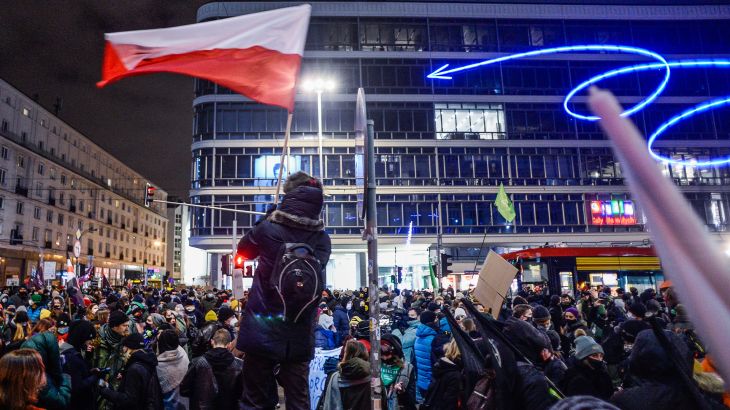
Poland’s Church and State Alliance
We investigate claims that the church and state in Poland have become too close.
Poland is widely regarded as Europe’s most socially conservative country, so it is not especially surprising that its current right-wing government and its Catholic Church enjoy a mutually supportive relationship based around shared values.
But critics say this concord has become increasingly toxic in recent years; that in the interests of advancing its moral agenda, the Church has stood by while the government eroded democratic norms, and that both have drawn strength and popularity from the demonisation of others – foreigners and migrants, the LGBTQ community and, most recently, campaigners for women’s rights.
Keep reading
list of 4 itemsIsraeli police detain Greek consul’s guard at Orthodox Easter ceremony
Gunman kills at least six in attack on mosque in Afghanistan’s Herat
Hinglaj Yatra Hindu festival brings mountainous region in Pakistan to life
In October 2020, things came to a head when Poland’s constitutional tribunal, the highest judicial authority in the land, announced it would implement an almost total ban on abortion – a long-cherished ambition of both the country’s de facto leader, Jaroslav Kaczynski of the nationalist Law and Justice Party, and his allies in the church.
The decision brought many thousands of people onto the streets in protests that continued even after the ban came into effect in late January – reflecting growing public disquiet about the nature and consequences of Poland’s church and state alliance.
We sent filmmaker Glenn Ellis to find out why.